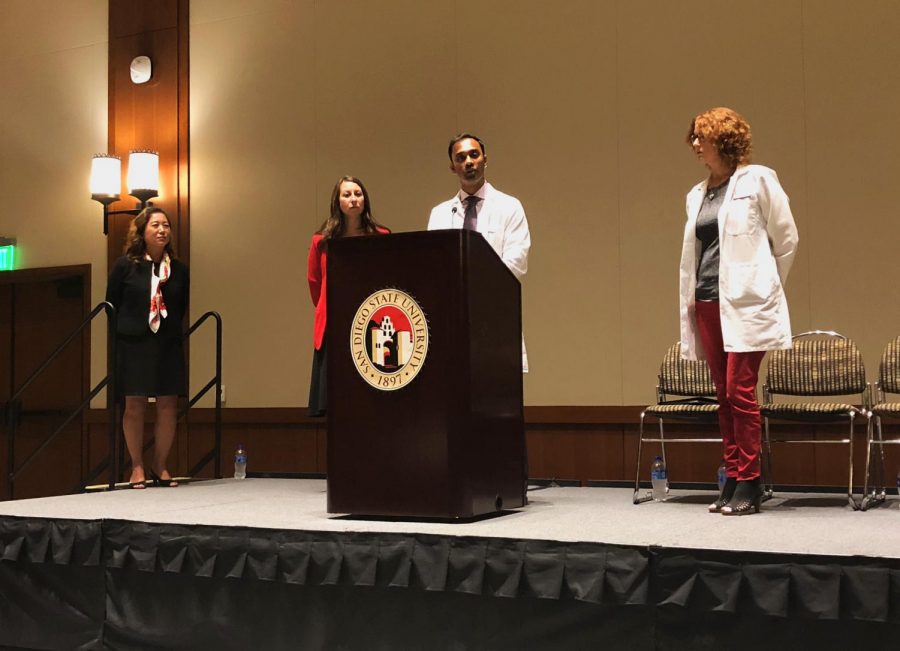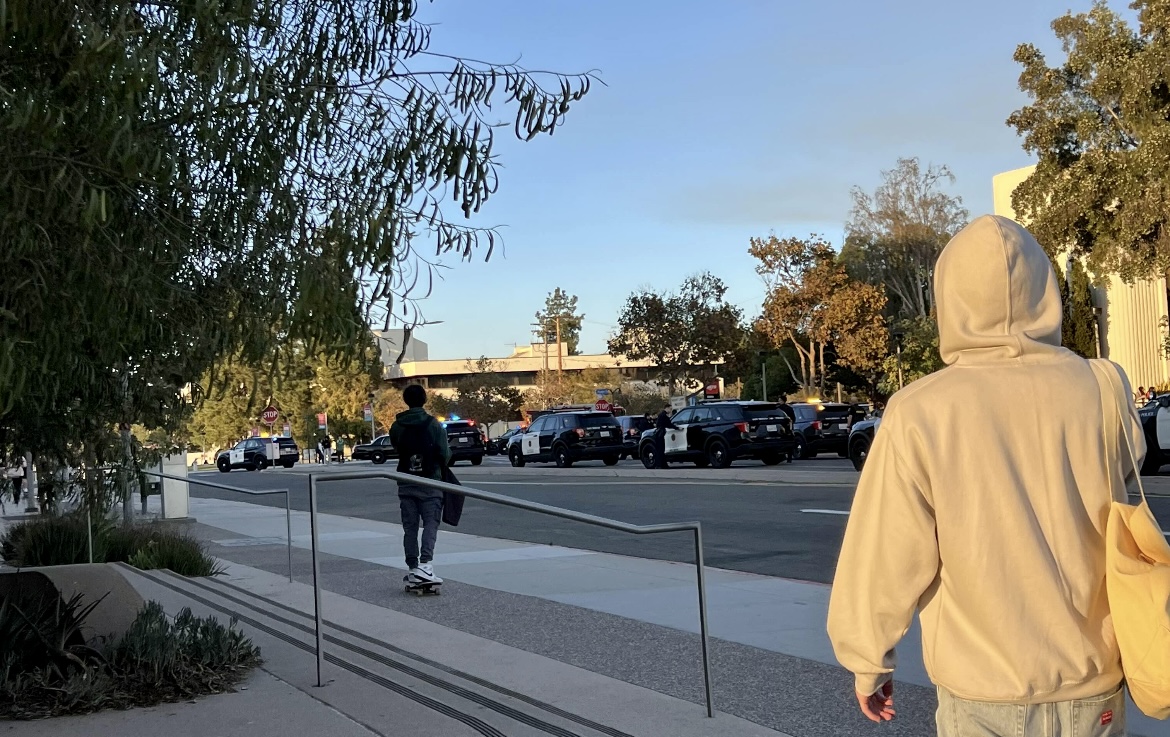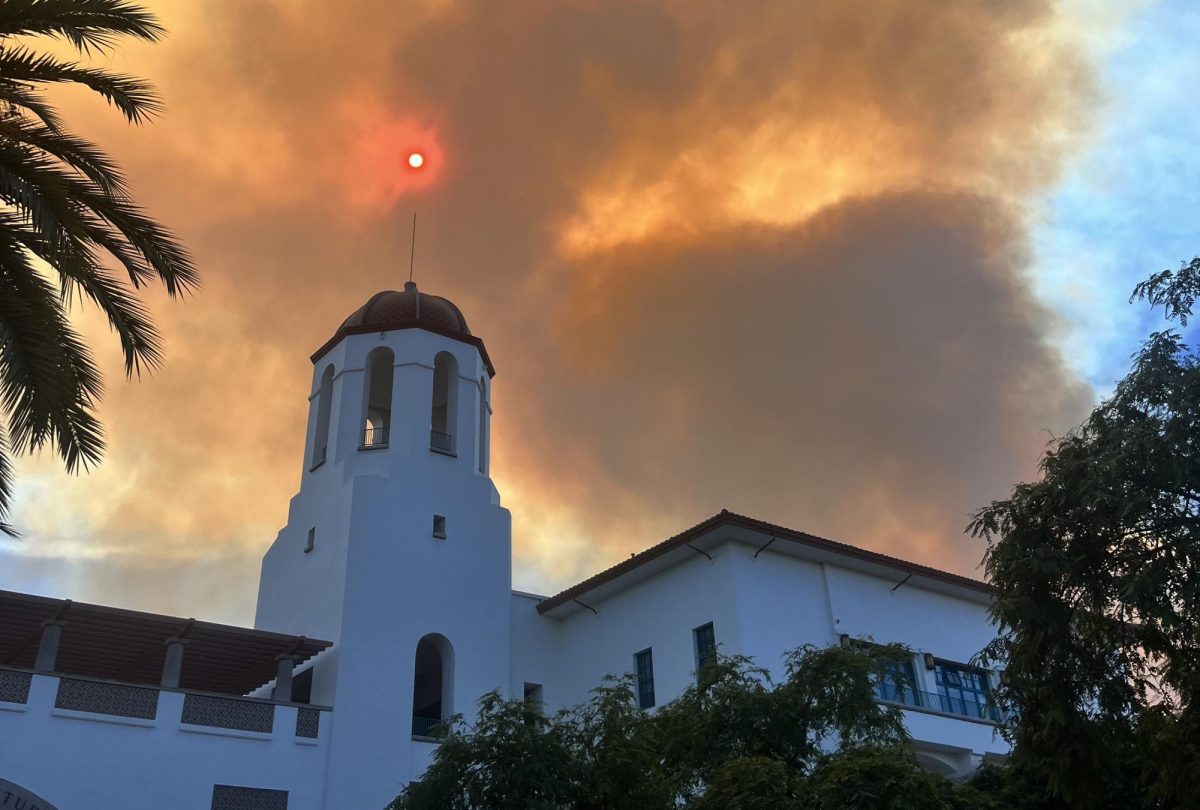San Diego County health officials declared an outbreak of meningococcal meningitis Friday after another student was hospitalized with the illness this week.
University officials confirmed the case in an email to students and staff early Friday, making it the second one since the beginning of the month. A student participating in sorority rush events contracted the illness during the weekend of Sept. 1.
County health officials also disclosed that a third student, who lived off campus and was not attending classes at the time, had contracted meningitis in June. The case wasn’t announced because health officials didn’t initially believe the case to pose a public health threat.
San Diego County Deputy Public Health Officer Dr. Sayone Thihalolipavan said none of the three cases are linked and the three students had no prior known contact with each other.
Thihalolipavan urged students during a press conference held at the university Friday morning to get vaccinated with one of two available Meningococcal B vaccines, adding it wasn’t necessary for graduate students, staff or anyone over 24 years old.
“It’s not that we have to be alarmed, but it’s that we have to take action and we have to get vaccinated,” Thihalolipavan said.
According to a current California State University executive order, all incoming freshmen who will live in campus housing are required to be notified of the availability of the vaccine, but are not required to actually receive it.
Associate Vice President of Student Affairs Andrea Dooley said during the press conference the university will be partnering up with San Diego County Public Health Services to hold a free vaccination event next week for students who don’t have medical insurance and for those who simply want to get vaccinated on campus.
“We’re encouraging students to get vaccinated and we (will also be) educating students about healthy habits that’s relevant for meningitis, but also relevant for the cold and flu,” Dooley said.
Typical symptoms for meningococcal meningitis include high fever, severe headache, stiff neck, rash, nausea, vomiting and lethargy, and may resemble the flu, SDSU Student Health Services Director Cynthia Cornelius said in an email.
She added the disease can progress in as little as 12 hours, making “prompt diagnosis and treatment” critical.
“We understand how scary it is for students and their parents to hear the word ‘outbreak,’ Cornelius said during the press conference. “An outbreak in this case consists of three students and it’s not a time to be alarmed, it’s a time to understand what you can do to protect yourself.”
University and county health officials said they will continue to monitor the outbreak, encouraging students who are showing signs of the disease to seek immediate medical treatment.
“We do understand that this is a scary thing but we are going to do everything we can to communicate, educate and assist our community,” Cornelius said.










